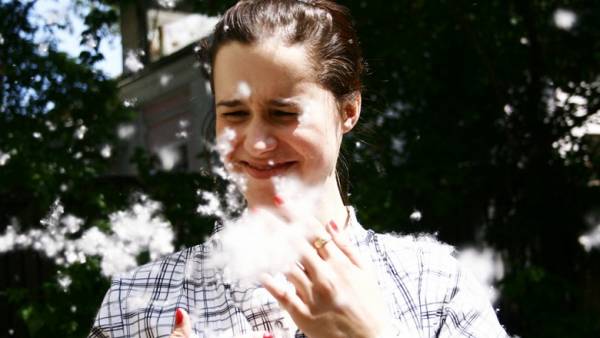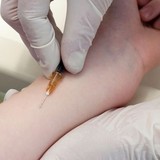What to do with allergies in the spring
Finally the spring came, and so, soon the trees bloom and grass — Allergy sufferers will have a hard time. TASS asked the doctors what to do, so as not to sneeze on the whole office and not to nod.

Doctors allergists and immunologists Bolibok Vladimir and Alexei the Immortal explained what are seasonal allergies, where it comes from, how to treat her and why with this disease need to see a specialist.
What happened?
Every year around the same time, many people start rubbing the eyes, sneezing and talking in the nose. It is called hay fever, or seasonal allergic rhinoconjunctivitis. According to various estimates, in Russia this disease is 3-7% of people. But the main thing — gradually, the incidence is increasing. Usually hay fever is not dangerous, but the thing is still unpleasant: difficult to focus, does not sleep.
What are the main symptoms of hay fever?
Most often, when seasonal Allergy patients sneeze, their nose swells, it begins runny nose, eyes become red and watery. Because of this, the hay fever is sometimes confused with a cold, especially if before it was not.
In severe cases people still breathing like in asthma, they have a swollen face or other parts of the body, headache, fever, and skin gets red welts.
Why is this happening?
An allergic reaction starts when the mucous membranes of the nose, eyes or other organs gets microscopic pollen. The human immune system inciting pollen particles protective antibodies, because of this the inflammation begins with all its symptoms. Hay fever is transmitted by heredity: usually have one or both parents of the patient also have the Allergy. Also the risk increases because of the dirty air (allergens react with soot, rubber particles and are harder on the immune system). Even the development of allergies is affected by the… cleanliness: it is noticed that in countries where less common infectious diseases, often the immune disorder.
And psychological problems do not cause allergies, but it can aggravate because stress hormones suppress the immune system.
How to find out if you have allergies and to what?
First you need to go to the therapist to decide whether it is necessary to consult a specialist. But you can just go to an allergist and take some tests. The doctor applied to the skin various substances to see which will start the irritation. You can still donate blood for antibodies, a swab from the nose (this is called rhinocytogram), to check whether the working light. The allergist is not in every public health clinic, but in private it found no problem.
One of the strongest allergens in our latitudes is the birch. Also hay fever arises from a maple, oak, spruce, hornbeam, beech, elm, weeds, grasses, such as Timothy. Contrary to popular belief, poplar fluff is not an allergen, but it collects on itself the pollen of other plants and dirt particles from the air.
How to treat hay fever?
There are two ways to treat hay fever. First — allergen-specific immunotherapy (ASIT), when the body accustomed to the allergen: it is either injected under the skin, or a drop under the tongue or allowed to breathe or drink, gradually increasing the dose. The injections last longer, do them once a month, and the drops under the tongue start to give three to four months before flowering and during pollination season. For two or three years of treatment nearly all the patients forget about the unpleasant symptoms, the effect lasts for several years.
News Chief tuberculosis specialist of the Russian Federation was allowed to wet Mantu
Chief tuberculosis specialist of the Russian Federation was allowed to wet Mantu
The second method is the seasonal treatment when during flowering patients take medications to anti-leukotrienes, antihistamines and steroids relieving swelling and inflammation in the nasopharynx. Often people avoid antihistamines due to the fact that they are sleepy. The old drugs did have this effect, but modern medicine — loratadine, cetirizine is not drawn to lie down on the sofa.
During flowering should wear goggles, mask or special filters for the nose that mucous came as little pollen. It will help you understand what your trouble is. If you are not sure about allergies and face protection symptoms disappear, perhaps you’ve got an appointment with an allergist.